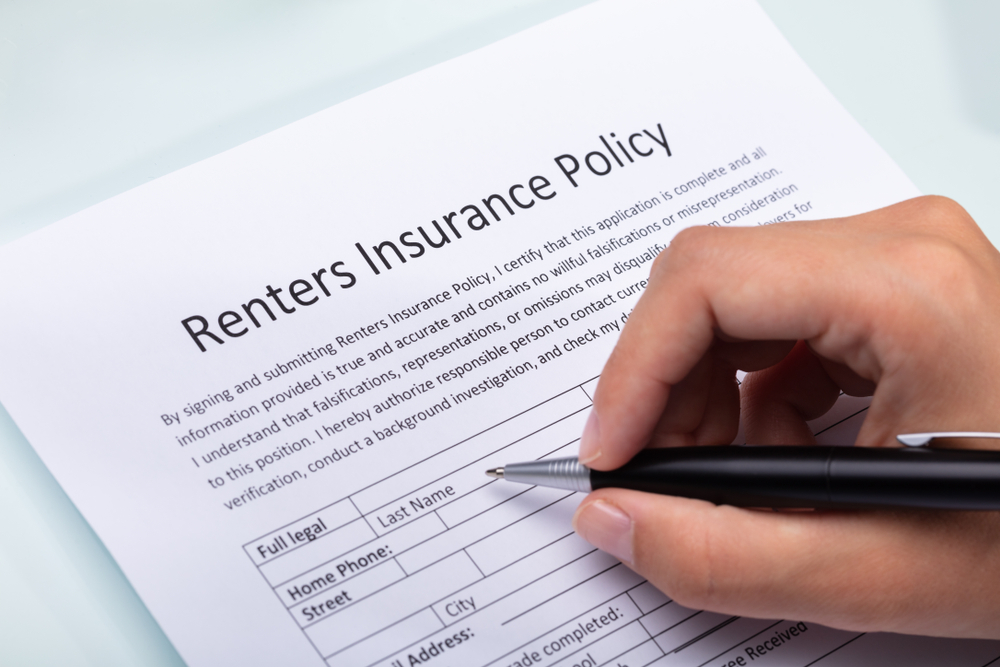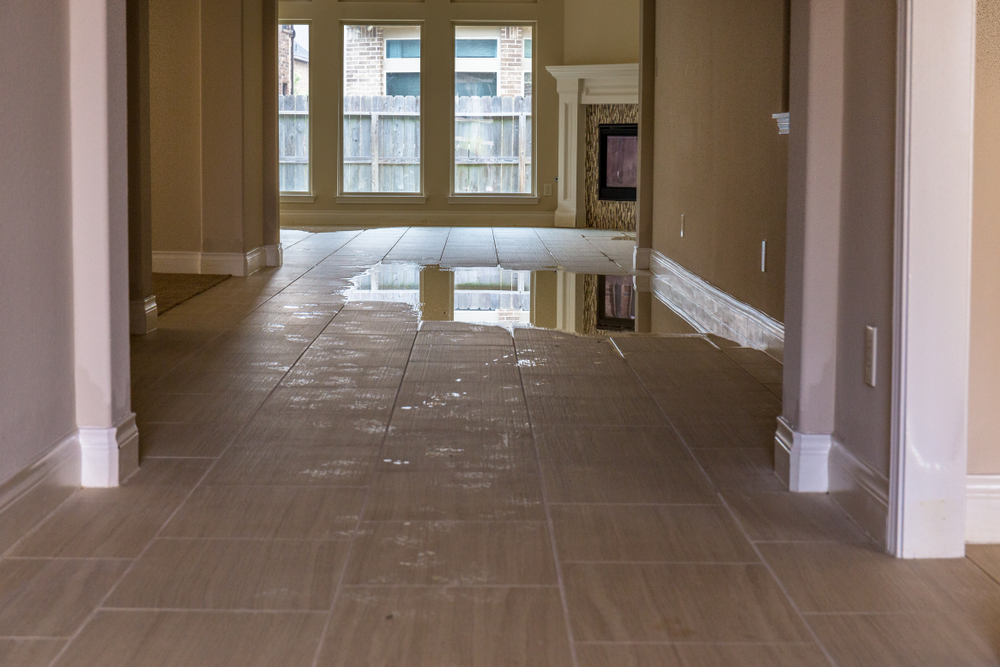Hurricanes are unpredictable and destructive, leaving behind a trail of devastation that can wipe out homes and belongings in an instant. If you’re renting, you might wonder, does renter’s insurance cover hurricane damage? Many renters mistakenly believe they’re fully protected by their landlord’s insurance, only to discover after the storm that their personal property isn’t covered.
When winds tear through your neighborhood or floods start creeping in, the last thing you want to worry about is whether your insurance will help you recover. The real question is, does your renter’s insurance offer the protection you need, or will you be left picking up the pieces on your own?
In this blog, we’ll explore whether renter’s insurance covers hurricane damage, what’s typically included, and how to make sure you have the right coverage before disaster strikes.
Understanding Renter’s Insurance: A Quick Overview
Renter’s insurance serves as a safety net for tenants, providing essential protection for personal property and liability coverage. While it doesn’t protect the physical structure of a rented home or apartment, it can shield tenants from significant financial loss due to damage, theft, or other unexpected events. Yet, many renters either overlook its importance or misunderstand its scope, particularly when natural disasters like hurricanes strike.
What Is Renter’s Insurance?
Renter’s insurance is a type of policy designed specifically for individuals renting a property. It typically offers three key protections: coverage for personal belongings, liability protection in case someone is injured in the rental, and “loss of use” coverage, which provides financial assistance if the tenant needs to relocate temporarily due to damages. Unlike homeowner’s insurance, this policy doesn’t cover the physical building but focuses on safeguarding the renter’s possessions and personal liability.
Common Misconceptions About Renter’s Insurance
A common misunderstanding is that renter’s insurance is unnecessary because the landlord’s insurance will cover damages. This is far from accurate. Landlord policies generally protect only the building itself, leaving tenants responsible for their personal items. Another misconception is that renter’s insurance covers everything, including all-natural disasters or floods, which often isn’t the case. Lastly, some tenants believe the cost of renter’s insurance is prohibitive when in reality, it is relatively affordable.
What Renter’s Insurance Typically Covers
Renter’s insurance generally covers personal property like furniture, electronics, clothing, and other possessions against perils such as fire, theft, vandalism, and certain weather-related damages. It also includes liability coverage, which protects you if someone is injured in your rental and you are found legally responsible. In many cases, renter’s insurance will also cover temporary living expenses if your rental becomes uninhabitable due to a covered event, under the “loss of use” clause.
The Impact of Hurricanes on Rented Properties
Hurricanes can wreak havoc on both the structural integrity of rental properties and the personal belongings within. Strong winds, torrential rain, and flying debris can lead to extensive property damage. For renters, the destruction of personal belongings, as well as the potential need to relocate, are immediate concerns. Without proper insurance coverage, the financial burden can be overwhelming.
How Hurricanes Can Damage a Rental Property
Hurricanes bring a unique blend of destructive forces—wind, rain, and flooding. High-speed winds can break windows, tear off roofs, and uproot trees that may crash into the building. Torrential rain can seep into the structure, causing significant water damage to both the property and personal items. In coastal areas, storm surges and flooding are particular risks, potentially leading to widespread damage.
Personal Property vs. Structural Damage: What’s the Difference?
Structural damage refers to harm inflicted on the building itself, including walls, roofs, and foundations. This is usually covered by the landlord’s insurance. On the other hand, personal property damage involves the tenant’s belongings inside the rental, such as electronics, furniture, and clothes. Renter’s insurance is responsible for covering personal property, while the landlord’s policy takes care of the structural aspects.
The Financial Risks of Not Having Coverage
Without renter’s insurance, tenants face steep financial risks in the event of disaster. For example, replacing personal belongings lost in a hurricane can easily reach thousands of dollars. Furthermore, without loss of use coverage, renters may have to pay out-of-pocket for temporary housing. Without liability protection, they could also be responsible for medical or legal expenses if someone is injured in their rental.
Does Renter’s Insurance Cover Hurricane Damage?
Whether renter’s insurance covers hurricane damage largely depends on the specific terms of the policy. In many cases, standard policies will cover damage caused by wind but may exclude damage caused by flooding or storm surges. It is crucial for renters to review their policies to understand the scope of protection and identify any potential gaps.
What Renter’s Insurance Doesn’t Cover in a Hurricane
While renter’s insurance provides broad protection, there are notable exclusions when it comes to hurricane damage. Flooding is the most common exclusion, leaving tenants unprotected from water damage unless they carry separate flood insurance. Additionally, certain types of water intrusion, like slow leaks, may not be covered, as insurance policies typically protect against sudden, accidental events rather than ongoing maintenance issues.
Flooding: A Common Gap in Coverage
Flood damage is rarely covered by standard renter’s insurance policies, even though it’s a significant risk during hurricanes. Whether caused by storm surges or overflowing rivers, floodwaters can destroy personal property in a rental, leaving tenants vulnerable without additional flood insurance. It’s essential to assess whether you need a separate flood policy based on your location and risk.
Understanding Windstorm Exclusions
In high-risk coastal areas, many renter’s insurance policies come with windstorm exclusions, meaning damage from hurricane-force winds may not be covered. Tenants in these areas may need to purchase an additional windstorm policy to ensure full protection. It’s vital to review your policy for such exclusions before hurricane season begins.
Other Common Exclusions to Watch Out For
Aside from windstorm and flood exclusions, some renter’s insurance policies may have other limitations, such as excluding damage from mold or gradual water damage. Additionally, high-value items like expensive jewelry or electronics might have coverage limits unless you opt for an additional rider or endorsement to increase the policy’s payout on those items.
How to Ensure You’re Covered for Hurricane Damage
To ensure comprehensive coverage for hurricane-related risks, renters should first review their current policy to identify exclusions. Supplementing standard coverage with flood insurance and possibly a windstorm policy is essential for those living in hurricane-prone regions. Renters should also confirm that their coverage limits are sufficient to replace their belongings.
Supplementing Your Renter’s Insurance with Flood Insurance
Flood insurance is often a necessity for renters in coastal or flood-prone areas. It covers personal property damaged by flooding, whether from a storm surge, overflowing rivers, or torrential rains. Federal flood insurance programs like the National Flood Insurance Program (NFIP) can provide this coverage, and many private insurers also offer flood policies.
Reviewing and Updating Your Policy: Key Steps Before Hurricane Season
Before hurricane season, renters should carefully review their insurance policies, update their coverage limits if necessary, and add any supplementary policies for flood or windstorm protection. It’s also wise to document belongings, take photos, and ensure they are listed on the policy to simplify the claims process in case of damage.
Tips for Filing a Claim After a Hurricane
When filing a claim after a hurricane, renters should act quickly by notifying their insurer as soon as possible. Document all damage with photographs or videos and keep records of any temporary living expenses if you’re displaced. Providing a detailed inventory of damaged belongings can help expedite the claim process.
Additional Considerations and FAQs
Renters often have additional questions about how their coverage applies in hurricane scenarios. Common concerns include whether the landlord’s insurance will cover any personal losses (it won’t) and how to calculate how much coverage is necessary to protect their belongings effectively. Renters should seek guidance from their insurance agent if they are unsure.
How Much Renter’s Insurance Do You Need for Hurricane Protection?
The amount of coverage you need depends on the value of your personal belongings and the specific risks in your area. Take an inventory of your possessions and ensure that your policy provides enough to replace them in the event of hurricane damage. You may also want to consider additional coverage for high-value items.
Will Renter’s Insurance Cover Everything?
Contrary to popular belief, renter’s insurance won’t cover everything in the event of a hurricane. Flooding and windstorm damage are often excluded from standard policies, and certain high-value items may have limited coverage. Renters must read their policies carefully, supplement coverage where needed, and be aware of potential gaps.
Personal Belongings: Are They Protected from Hurricane Damage?
Renter’s insurance typically covers personal belongings from damage caused by wind or rain, as long as the rain entered due to a covered event (like wind damaging a roof). However, belongings destroyed by floodwaters are often not covered under a standard policy. Tenants may need to purchase separate flood insurance to ensure protection from all hurricane-related damages.
Loss of Use: Will Your Insurance Help If You’re Displaced?
If a hurricane renders your rental uninhabitable, “loss of use” coverage within renter’s insurance can provide relief by covering additional living expenses such as hotel stays, food, and other costs incurred while you’re displaced. This ensures that tenants won’t be left scrambling to find temporary housing and footing the bill on their own.
Sign Up For Hurricane Coverage Today
In conclusion, understanding renter’s insurance is vital for anyone living in a rental property, especially in hurricane-prone areas. While it provides essential coverage for personal belongings and liability, it is crucial to be aware of its limitations, particularly regarding flood and windstorm damage.
By proactively reviewing and updating your policy, considering supplementary coverage, and preparing for potential disasters, you can significantly mitigate the financial risks associated with hurricanes. Being well-informed ensures that you are not only protected but also prepared to navigate the challenges that come with natural disasters. Taking these steps can give you peace of mind, knowing that you are equipped to safeguard your home and possessions.
Contact us for more information about renter’s insurance and how we can help you!



